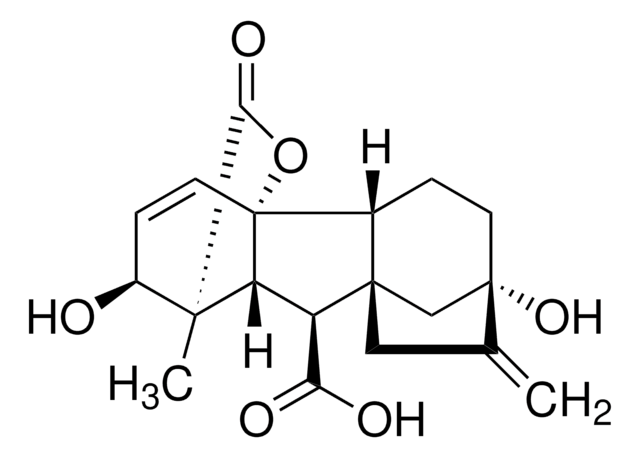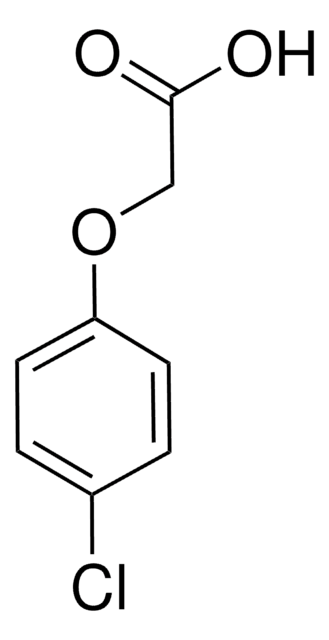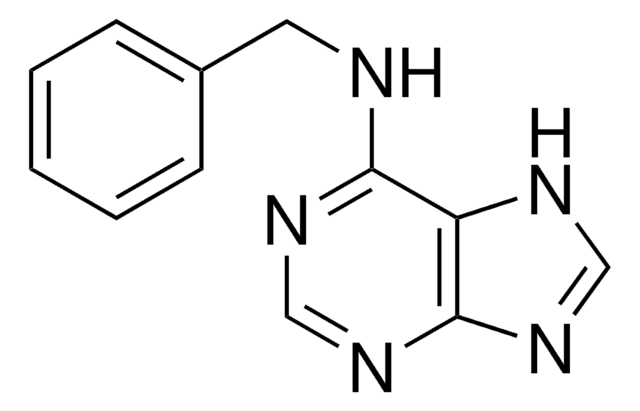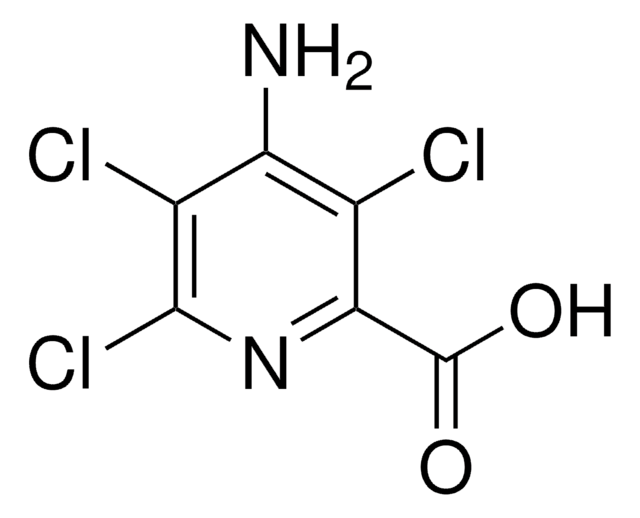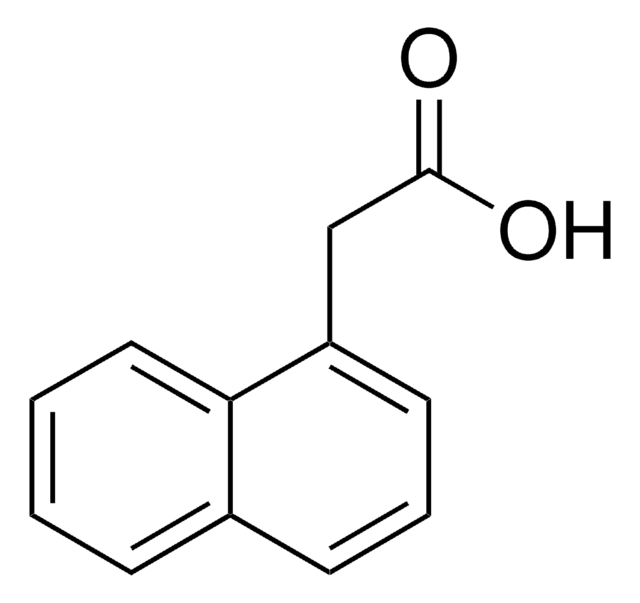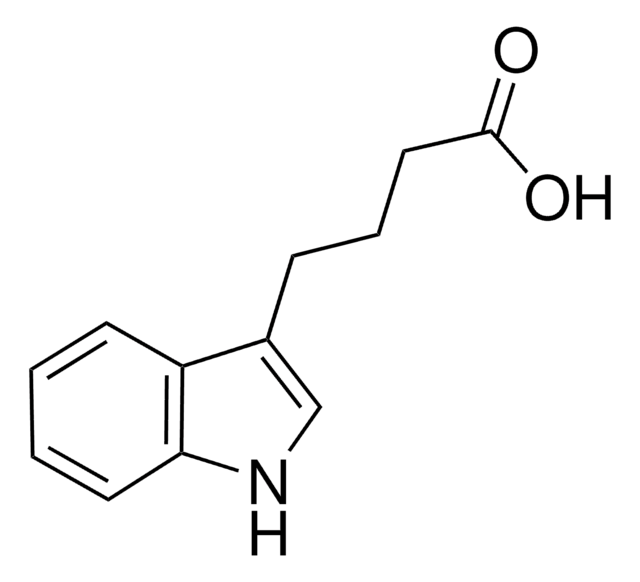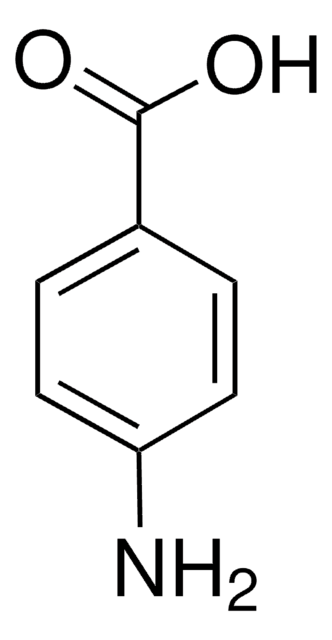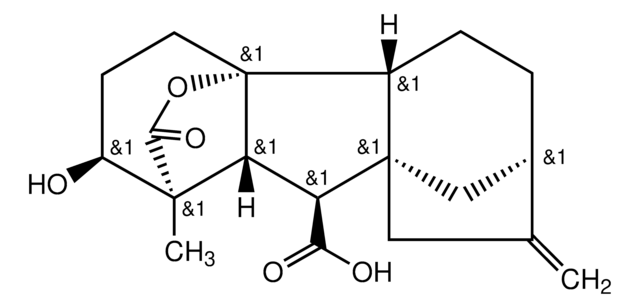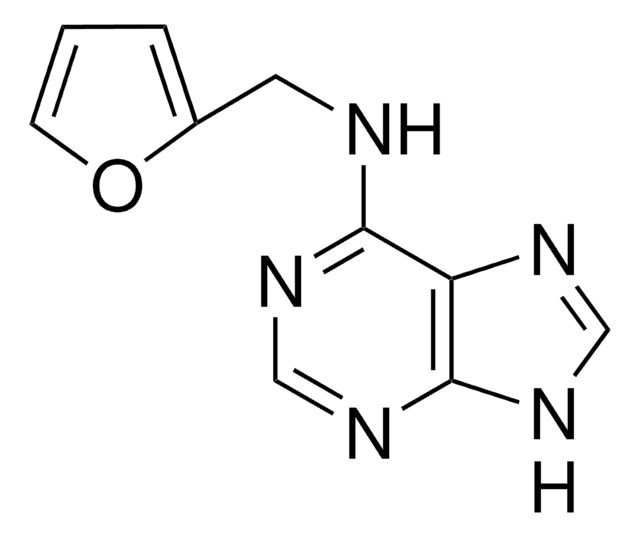Alle Fotos(1)
Wichtige Dokumente
C0413
4-Chlorphenoxyessigsäure
BioReagent, suitable for plant cell culture, crystalline
Synonym(e):
4-CPA
Anmeldenzur Ansicht organisationsspezifischer und vertraglich vereinbarter Preise
Alle Fotos(1)
About This Item
Empirische Formel (Hill-System):
C8H7ClO3
CAS-Nummer:
Molekulargewicht:
186.59
Beilstein:
1211804
EG-Nummer:
MDL-Nummer:
UNSPSC-Code:
10171502
PubChem Substanz-ID:
NACRES:
NA.72
Empfohlene Produkte
Produktlinie
BioReagent
Qualitätsniveau
Form
crystalline
Methode(n)
cell culture | plant: suitable
Anwendung(en)
agriculture
SMILES String
OC(=O)COc1ccc(Cl)cc1
InChI
1S/C8H7ClO3/c9-6-1-3-7(4-2-6)12-5-8(10)11/h1-4H,5H2,(H,10,11)
InChIKey
SODPIMGUZLOIPE-UHFFFAOYSA-N
Suchen Sie nach ähnlichen Produkten? Aufrufen Leitfaden zum Produktvergleich
Anwendung
4-Chlorophenoxyacetic acid has been used in para-chlorophenoxyacetic acid (p-CPA) residue assay.
4-chlorophenoxy acetic acid (4-CPA), a chlorine derivative of phenoxyacetic acid (PA), is a plant growth regulator used as a herbicide.
Biochem./physiol. Wirkung
4-Chlorophenoxyacetic acid is a synthetic auxin, that is used to induce parthenocarpic ovary growth on flowers of wild type plants.
Signalwort
Warning
H-Sätze
Gefahreneinstufungen
Acute Tox. 4 Oral
Lagerklassenschlüssel
11 - Combustible Solids
WGK
WGK 1
Flammpunkt (°F)
Not applicable
Flammpunkt (°C)
Not applicable
Persönliche Schutzausrüstung
dust mask type N95 (US), Eyeshields, Gloves
Hier finden Sie alle aktuellen Versionen:
Besitzen Sie dieses Produkt bereits?
In der Dokumentenbibliothek finden Sie die Dokumentation zu den Produkten, die Sie kürzlich erworben haben.
Kunden haben sich ebenfalls angesehen
Tomato fruit development in the auxin-resistant dgt mutant is induced by pollination but not by auxin treatment
Mignolli F, et al.
Journal of Plant Physiology, 169(12), 1165-1172 (2012)
p-CPA enhances growth and quality of muskmelon fruits
Hayata Y, et al.
Plant Growth Regulation, 36(1), 13-18 (2002)
G Carbonara et al.
Farmaco (Societa chimica italiana : 1989), 56(10), 749-754 (2001-11-23)
2-(4-Chloro-phenoxy)propanoic and 2-(4-chloro-phenoxy)butanoic acids are compounds known to block chloride membrane conductance in rat striated muscle by interaction with a specific receptor. In the present study, a series of chiral analogues has been prepared and tested to evaluate the influence
K T Ranjit et al.
Environmental science & technology, 35(7), 1544-1549 (2001-05-12)
The photocatalytic degradation of p-chlorophenoxyacetic acid has been investigated in oxygenated aqueous suspensions of lanthanide oxide-doped TiO2 photocatalysts. Complete mineralization was achieved. The enhanced degradation is attributed to the formation of Lewis acid-base complex between the lanthanide ion and the
Birame Boye et al.
Environmental science & technology, 36(13), 3030-3035 (2002-07-30)
The herbicide 4-chlorophenoxyacetic acid (4-CPA) has been degraded in aqueous medium by advanced electrochemical oxidation processes such as electro-Fenton and photoelectro-Fenton with UV light, using an undivided cell containing a Pt anode. In these environmentally clean methods, the main oxidant
Unser Team von Wissenschaftlern verfügt über Erfahrung in allen Forschungsbereichen einschließlich Life Science, Materialwissenschaften, chemischer Synthese, Chromatographie, Analytik und vielen mehr..
Setzen Sie sich mit dem technischen Dienst in Verbindung.